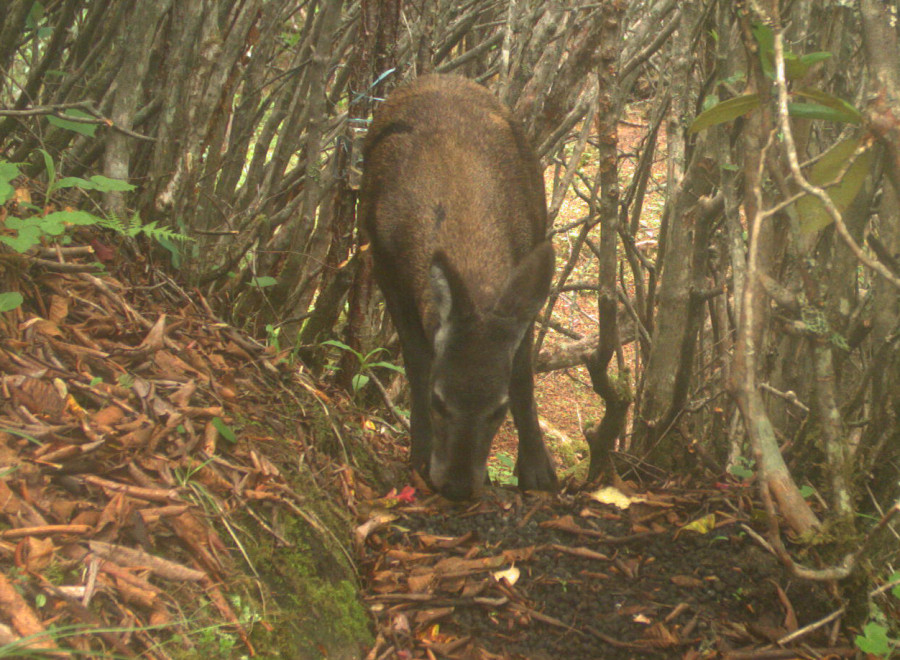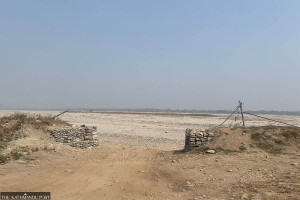Koshi Province
Counting of musk deer starts in Kanchenjunga
The animal is hunted for its musk, a powdery substance found in male musk deer.
Ananda Gautam
Counting of musk deer (Moschus chrysogaster), known as Kasturi Mriga, has started at the Kanchenjunga Conservation Area for this fiscal year.
The musk deer is valued for its scent glands that are known to have medicinal properties. The animal has been listed as an endangered species by the National Parks and Wildlife Conservation Act, 1973 in Nepal. According to the Department of National Parks and Wildlife Conservation, around 2,000 to 2,500 musk deer are found in the country.
In the Kanchenjunga Conservation Area alone, conservationists suspect that there might be 400 to 500 musk deer.
Yogesh Dhakal, a conservationist, said Ghunsa, Kumbhakarna, Olangchung Gola and Ramjor blocks are the main habitats of musk deer in the sanctuary.
“We have started counting musk deer in these four blocks,” Dhakal said. “The animal has a habit of defecating in the same place, so we can estimate their average number on the basis of their faeces. The faeces are going to be lab-tested as well.”
After evaluating the first phase of the search in Ghunsa block, conservationists estimate the number of musk deer in the block to be 50-60. Of all the blocks, the deer density is highest in Olangchung Gola, conservation officials say.
To protect musk deer from poachers, Nepal Army soldiers and the conservation area officials conduct a “sweep operation” in the area every year. Maheshwor Niraula, an official at the Kanchenjunga Conservation Area, said the reserve will complete the counting within the current fiscal year.
The animal is hunted for its musk, a powdery substance found in male musk deer. Musk is used as an ingredient in traditional Chinese medicine to prepare sedatives and stimulants, and as perfumes.
The prevailing legal system of the country states that anyone found smuggling musk pods will face a maximum sentence of 15 years or a fine up to Rs 100,000, or both.
***
What do you think?
Dear reader, we’d like to hear from you. We regularly publish letters to the editor on contemporary issues or direct responses to something the Post has recently published. Please send your letters to [email protected] with "Letter to the Editor" in the subject line. Please include your name, location, and a contact address so one of our editors can reach out to you.




 13.03°C Kathmandu
13.03°C Kathmandu













